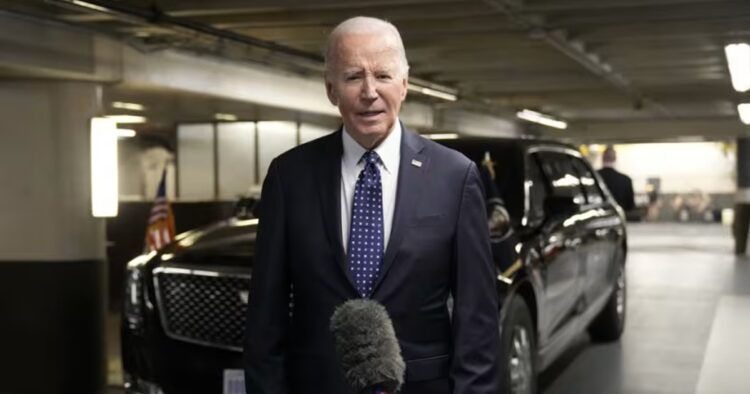The United States has taken significant action against Russia, imposing wide-ranging sanctions on more than 500 individuals and entities. These sanctions come on the second anniversary of Russia’s invasion of Ukraine and in response to the death of Russian opposition leader Alexei Navalny.
President Joe Biden stated that these measures are aimed at increasing the cost for Russian President Vladimir Putin for his aggressive actions abroad and oppressive tactics at home.
The sanctions target various sectors including Russia’s Mir payment system, financial institutions, military industrial base, and those involved in sanctions evasion. Additionally, prison officials linked to Navalny’s death were also hit with sanctions.
Russian Ambassador to Washington, Anatoly Antonov, expressed defiance, stating that Russia remains undeterred by the sanctions.
In a separate move, the U.S. imposed sanctions on Sovcomflot, Russia’s leading tanker group, accusing it of violating price caps on Russian oil set by the G7. Fourteen crude oil tankers associated with Sovcomflot were also targeted.
The Biden administration emphasized its commitment to supporting Ukraine, particularly in the face of ammunition shortages. However, approval for increased U.S. military aid to Ukraine has been delayed in Congress.
The European Union, Britain, and Canada also joined the United States in imposing sanctions against Russia.
The U.S. Treasury Department, State Department, and Commerce Department collectively targeted hundreds of individuals, entities, and companies in this latest round of sanctions.
Despite the extensive sanctions imposed by the United States and its allies over the past two years, Russia’s economy has proven more resilient than anticipated.
Treasury Secretary Janet Yellen emphasized the need for ongoing support to Ukraine while weakening Russia’s military capabilities. She called on Congress to bolster Ukraine’s defense capabilities.
Former officials offered differing views on the impact of the sanctions, with some suggesting they may be easily circumvented by Russia.
In addition to financial sanctions, the U.S. targeted Russia’s future energy production and exports, including the Arctic LNG 2 project.
Entities in China, Turkey, the United Arab Emirates, Kazakhstan, and Liechtenstein were also sanctioned for aiding Russia in circumventing Western sanctions.
China criticized the sanctions against its firms, labeling them as economic coercion by the United States.
The Biden administration also imposed trade restrictions on entities from Russia, China, Turkey, the United Arab Emirates, and elsewhere for supporting Russia’s actions in Ukraine.
Furthermore, the State Department targeted Russian Federal Penitentiary Service officials allegedly connected to Navalny’s death and individuals involved in the forcible transfer of Ukrainian children.
The actions taken by the United States represent the largest number of designations in a single Russia-related action to date, signaling a continued tough stance against Russian aggression.

















Comments